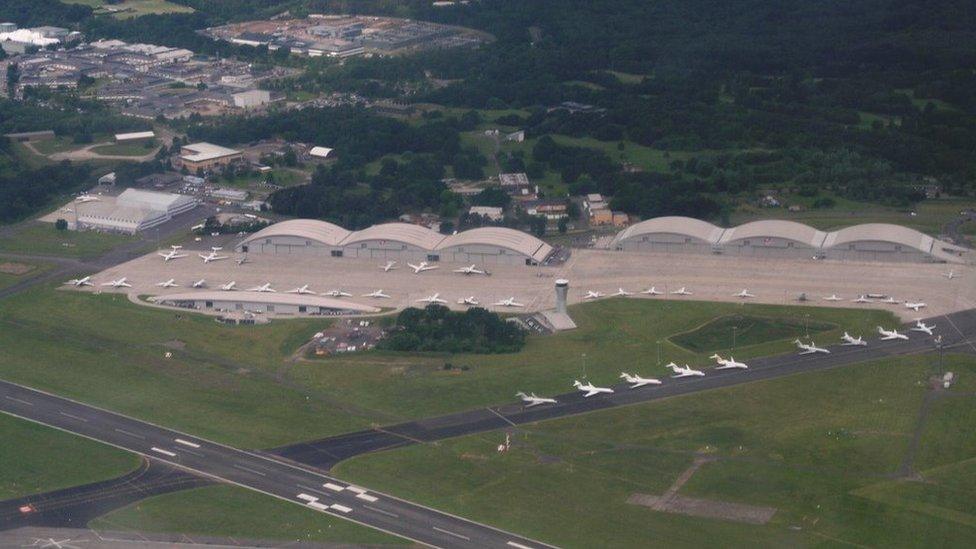Farnborough Airport's plan for more private jet flights opposed
- Published

Campaign group Safe Landing said "polluting private jets" should be curtailed
An airport's plan to increase its flight limit by 40% is a "slap in the face" for the Earth's climate, environmental campaigners have said.
Farnborough Airport aims to move from up to 50,000 flights a year to 70,000.
The Hampshire airfield, which mainly serves private jets, said it needed to expand to meet demand by the year 2040.
However, aviation campaign group Safe Landing said "polluting private jets catering to a handful of wealthy super-emitters" should be curtailed.
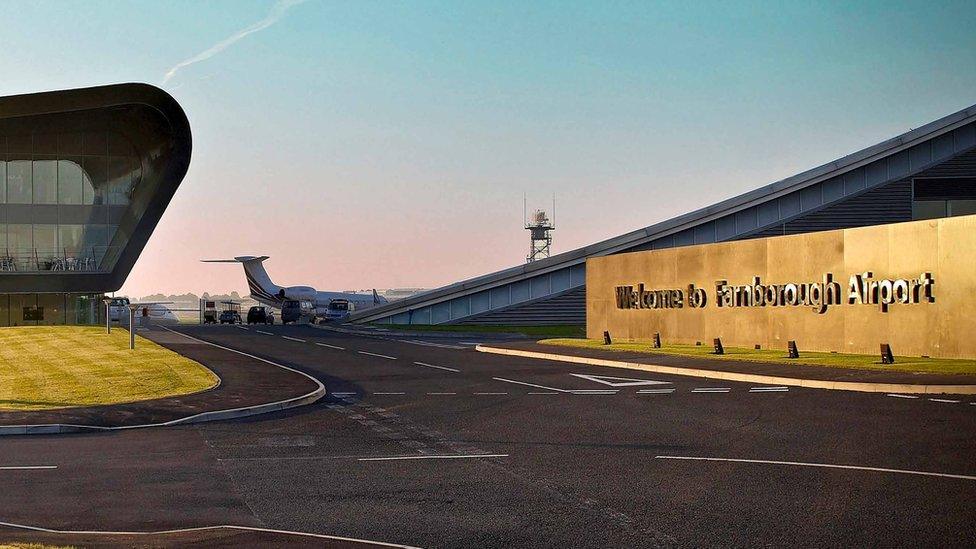
The airport said it needed to expand to meet future demand
The group said the airport should move its business towards "more sustainable low-carbon flying for the masses", involving cleaner fuels and larger planes.
Rushmoor Borough Council, which has previously declared a climate emergency, said it expected to receive the airport's planning application towards the end of the year.
Alton Climate Action Network said private jets produced more greenhouse gas emissions than any other mode of transport.
In a submission to the airport's forthcoming public consultation, the charity said: "On average, at Farnborough Airport, there are only 2.5 passengers per plane and 40% of aircraft fly empty."
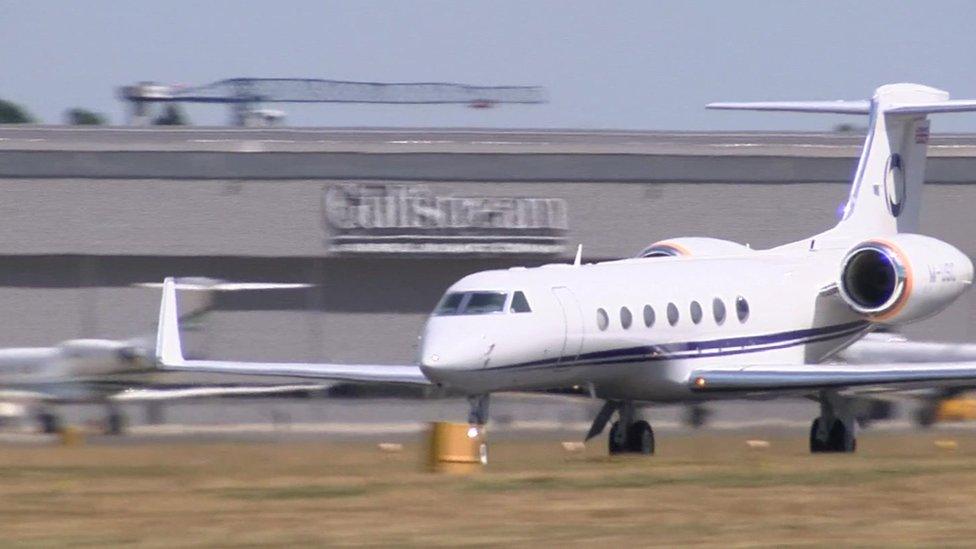
Private jets make up the majority of flights at Farnborough
Councillor Jules Crossley, who represents Friends of the Earth on the Farnborough Aerodrome Consultative Committee, said there should be no expansion until technology improves.
She said: "In 10 to 15 years, we will have noiseless and emission-free aircraft and then we can fly as much as we want."
She said the airport's plans would make a "huge difference" to residents who are already "flown over constantly".
Extinction Rebellion said it planned to attend the airport's six public drop-in events later in September.
Spokeswoman Sarah Hart said: "We should be stopping private flights. After this year's major flooding, droughts, crop failure and food shortage, this is just a complete slap in the face."
Farnborough Airport said it would work to balance the economic benefit and environmental impact of its plans.
It said it would comment more fully once its public consultation opens on 20 September.

Follow BBC South on Facebook, external, Twitter, external, or Instagram, external. Send your story ideas to south.newsonline@bbc.co.uk, external.
- Published10 November 2022
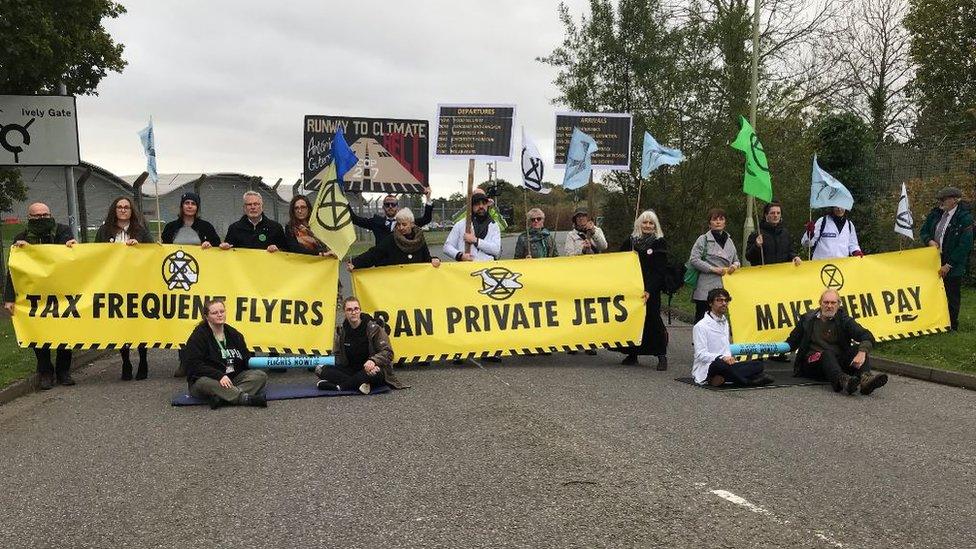
- Published2 October 2021
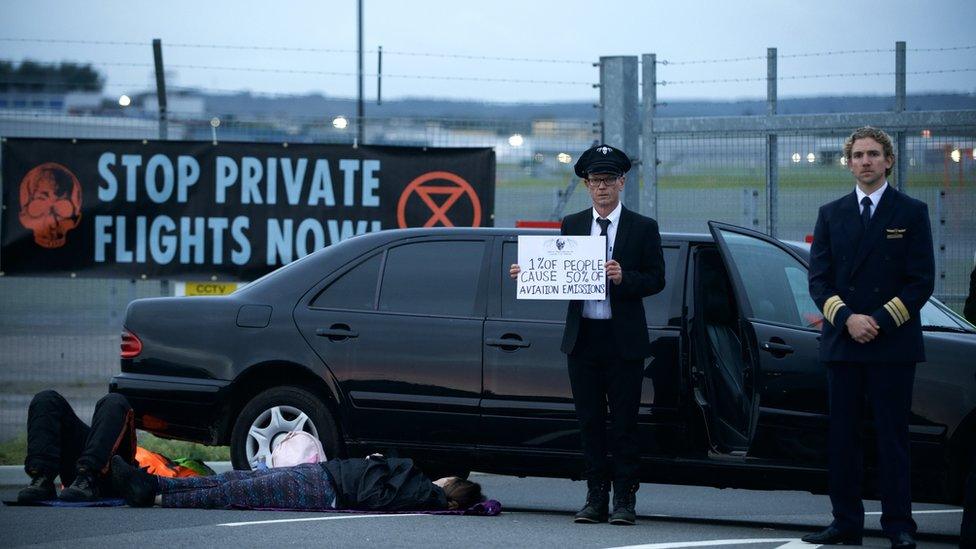
- Published2 August 2019
